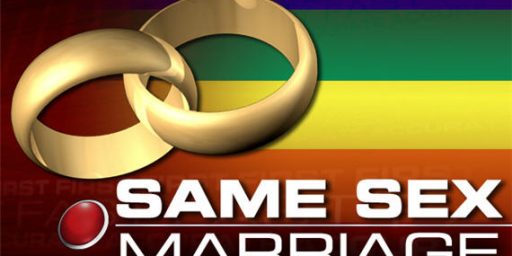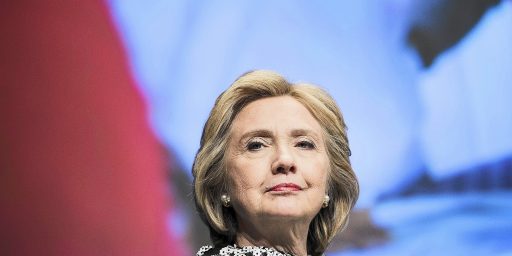Martin Luther King and Gay Marriage
King’s Own Family Reflects Larger Debate over Gay Marriage (AP)
When Martin Luther King Jr.’s youngest child lit a torch at her father’s tomb last month to kick off a march advocating a ban on gay marriage, it created a strong image linking the slain civil rights icon to a heated social debate.
Another indelible image: King’s widow addressing audiences at a New Jersey college just nine months earlier, defending the rights of gays and lesbians.
In a year that saw the issue of gay marriage cause a split across the black community, the debate hit no harder than in the home of King himself.
The famed leader never publicly spoke on gay rights while leading the charge toward racial equality in the 1950s and ’60s, but the clash over gay marriage has prompted those close to his legacy to pick sides and interpret how King would stand on the issue if he were alive today.
Read the entire piece, which is quite fascinating.
This story shows just how difficult a political issue gay marriage is for blacks. Consider five basic dimensions. First, black leaders want to unite with the Democratic Party and the grassroots liberal movement. Second, they want to unite with religious groups, particularly since black political activism has historically drawn on the church. Third, they retain some skepticism about broadening the civil-rights coalition — a development that could dilute their influence. Fourth, they question the motives of conservatives, who may be using gay marriage to divide their constituencies, which could ultimately help George W. Bush and other Republicans. Fifth, they worry that such wedge issues could detract from policy priorities like poverty.
After considering these political discomforts, check out this Washington Post op-ed by Ruben Navarrette (who, interestingly enough, is a fellow KSG guy). Navarrette highlights Democratic struggles with the Alberto Gonzales confirmation. Of course, many of their difficulties stem from the fact that various Latino leaders back the Mexican American nominee.
When you put the pieces together, it’s hard to take credit away from the Bush team. Whatever you may think of its politics and policies, it’s certainly done its homework on how to navigate ethnic politics.






wow, a blog mentioning Martin Luther King two days ahead of schedule, I’m shocked, shocked I tell you.
The famed leader never publicly spoke on gay rights while leading the charge toward racial equality in the 1950s and ’60s
especially since the gay rights movement pretty much gelled in 1969 with the Stonewall Riot in NY, and his constituency was still pretty conservative socially.
Can’t we debate this issue without putting words in the mouth of a dead man? It seems in rather poor taste for anyone to predict where he would have stood.
So would you say that to his widow, Attila girl? Coretta Scott King has gone on record as saying that Dr. King would have been for equal rights for gays. She knew him better than anyone, I would suspect.